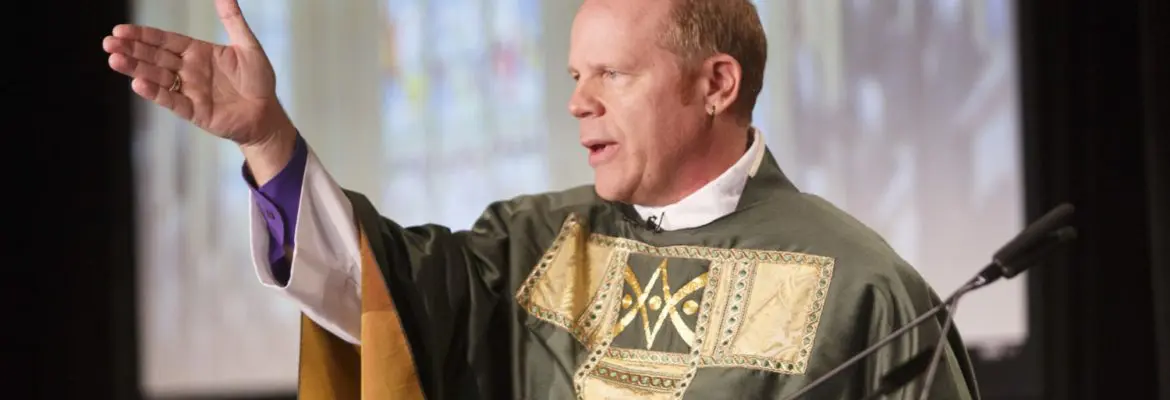
Dear Friends,
I need to write to you today about a difficult subject. One that affects far too many. I am speaking of sexual assault, an evil considered so unspeakable that for too long it was almost impossible to talk about. It continues to be difficult to raise this topic, and those who have the courage to do so – particularly victims who have personally experienced sexual assault – are to be commended and supported in every way. As hard as it is, these are extremely important conversations to have.
The first Tuesday of April marks the National Day of Action to raise awareness and prevention of Sexual Assault in the United States. The whole month is devoted to a national campaign. Likewise, since 1988, May has been Sexual Assault Prevention Month in Canada. During May, agencies, associations and community organizations and businesses make extra efforts to draw to our attention what constitutes sexual assault, who is most likely to be assaulted by whom, and the changes necessary to eradicate abuse.
Statistics from a 2018 Survey of Safety in Public and Private Spaces tell us that 23.5% of transgender Canadians reported experiences of sexual assault, 30% of all women age 15 or older report experiencing sexual assault and one-in-six Canadian men will be sexually assaulted in their lifetime. These statistics may be much higher because many incidents go unreported.
In October of 2017 the hashtag #MeToo became a watershed moment. It provided a platform for women to disclose, and it showed the extent of sexual misconduct and of harassment in the workplace, in communities and in families. In recent weeks hashtag #ACCToo has drawn our attention once again to the issue of sexual misconduct in the Church. The open letter signed by almost 400 people expresses specific concern about confidentiality surrounding an article that was being prepared for print in the Anglican Journal. At the heart of this letter is the deep concern for the Church and especially for those who have been abused, sexually assaulted and exploited. There is no place for abuse in the Church. Our hearts break for those who have been traumatized and we do our very best to create communities of safety, respect and healing.
It’s important to say: the Anglican Diocese of Toronto undertakes to ensure that all activities and work in which it is engaged upholds the values of love, truth and justice proclaimed in the Gospel of Jesus Christ. All employees, clergy, and volunteers have the right to a work environment that is safe and free of sexual misconduct of any kind. We are committed to making sure clergy and those responsible for liturgical, pastoral, educational or recreational activities maintain the highest ethical standards of mutual respect, responsibility and caring, as well as modeling wholeness and healthy sexuality in all their relationships with those for whom they have responsibility. For more than 20 years we have had in place a Sexual Misconduct Policy. Our Canon Pastor and trained Diocesan Response Team handles investigations and complaints. The Responsible Ministry: Screening in Faith program provides education and resources to educate, screen and create accountability. We take this matter seriously. And we work hard to create a safe space for victims to step forward, to disclose and to find healing.
At this week’s meeting of the National House of Bishops in Niagara Falls, we spent some time discussing the issue of sexual misconduct, especially in light of #ACCToo. We are all committed to constantly improving our policies and procedures to create a safe and healthy Church in our dioceses. To that end we are committed to do the following:
i) Commit to the work commended to the Dioceses by GS2019 (Resolution A128 https://gs2019.anglican.ca/cc/resolutions/a128/) – to review policies and practices in light of the Safe Church Charter of the Anglican Communion – by the end of 2022.
ii) Extend an invitation to Mandy Marshall, Animator for Gender Justice for the Anglican Communion, to meet with us in the Fall. Mandy is the former Director of Restored (https://www.restored-uk.org/) – a foundation that assisted those dealing with domestic abuse in the Church.
iii) Request a central web access for complainants – with the Safe Church Charter – on the national website, a single contact on the National Church website for each Diocese (Anglican.ca) – only for the purposes of facilitating and ensuring ease of connection.
iv) Commitment to training for bishops in the effects of Trauma – and the need for trauma informed approaches to misconduct allegations – beginning at our next meeting of the House of Bishops.
These initiatives call us to continue to improve, learn, respond and create systems and structures that guard and protect the safety of all in our Churches. As our Primate, Archbishop Linda Nicholls wrote, “…we pray for all that the Church has harmed in the past and may still harm in the present and future. Humility, repentance with transformed behaviour are the hallmarks of our gospel commitments.”
We now enter Holy Week. Let us join into Christ’s journey towards the Cross.
Yours in Christ,
The Rt. Rev. Andrew Asbil
Bishop of Toronto